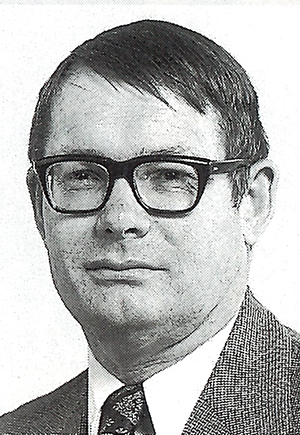Donald Bevan, key figure in UW School of Fisheries, dies at 75
 Donald Bevan, an ambitious, dedicated man who helped lead the University of Washington School of Fisheries to national prominence and who worked to save the Northwest salmon from extinction, died May 3, 1996, while undergoing open heart surgery. He was 75.
Donald Bevan, an ambitious, dedicated man who helped lead the University of Washington School of Fisheries to national prominence and who worked to save the Northwest salmon from extinction, died May 3, 1996, while undergoing open heart surgery. He was 75.
Bevan made a number of important contributions to his field, including a push to get individual fishermen and vessel crews involved in monitoring their own catches, rather than relying on government mandates. Bevan also headed the controversial Snake River Salmon Recovery Team.
“He was sad and concerned things weren’t moving fast enough, and that his views often were misrepresented,” says his wife of 25 years, Tanya Bevan. “He liked consensus and harmony.”
“He will be remembered best for trying to bring some order and common sense to the restoration of diminished Columbia River salmon runs,” says G. Ross Heath, former dean of the College of Ocean and Fishery Sciences. “He struggled to get decisions made on the basis of knowledge rather than ignorance.”
Bevan took a lot of criticism from environmental groups in 1994 for not proposing reservoir drawdowns or substantial changes in the operation of eight federal dams on the Columbia and Snake rivers. Instead, he recommended barging smolt around dams (see “Flowing Pains,” December 1994).
During his career, he helped enhance salmon runs in Alaska, where he was a bush pilot after serving in the Army Air Corps in World War II. He also helped secure cooperation between fisheries in the U.S. and the former Soviet Union in the early 1980s.
Bevan met his wife, also a fisheries student, on a study trip to the Soviet Union in 1959. Though he tried fishing as a hobby—he lacked the patience for it, his wife says—he did belong to such groups as the Izaak Walton League and Trout Unlimited. For relaxation, he turned to other pursuits, such as tending the garden or orchard on his 65-acre Duvall farm, or hunting elk or birds in Montana.
Bevan spent his entire 37-year career at the UW after earning his doctoral degree here in 1959. From 1976 to 1985, he served as associate dean and dean of the College of Fisheries and then as director when the unit became the School of Fisheries in the early 1980s. He also served as assistant to the dean of the College of Ocean and Fishery Sciences after those units were reorganized.
Remembrances may be sent to the UW School of Fisheries, Box 357980, Seattle, WA 98195-7980.